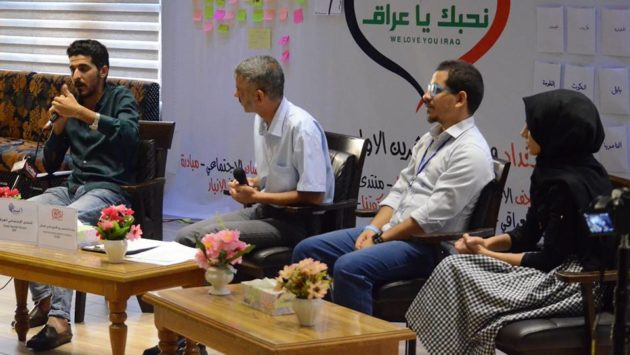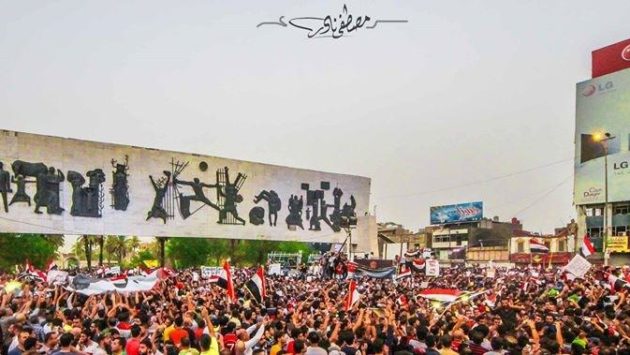Post-ISIS Iraq: Challenges and Opportunities for a New Political Order

By Kawa Hassan – Eastwest
On January 18, the EastWest Institute and the Center for Applied Research in Partnership with the Orient (CARPO) hosted a closed roundtable discussion with Dr. Mustafa Al-Hiti, Chairman of the Iraqi Reconstruction Fund for Areas Affected by Terrorist Operations (REFAATO), and Mr. Ramon Belcua, the European Union Ambassador to Iraq. The round table focused on the challenges and opportunities for a new political order in post-ISIS Iraq.
In many respects, 2017 was a remarkable year for Iraq. ISIS has been militarily weakened and most urban areas have been liberated from the terrorist organization. For the first time since 2013, the number of internally displaced persons returning to their areas of origin has surpassed the number of those displaced. Furthermore, the Iraqi government and political forces started a rapprochement process with the Arab Gulf neighbors.
Yet, Iraq will face daunting challenges in the coming years and maybe even decades: (re)building a new political order that meets the demands of Iraqi citizens for real reforms, fair redistribution of revenues and power, good governance, transparency, accountability, reconciliation, restructuring of the relations between Baghdad and Kurdistan Regional Government, recovery of ISIS-liberated areas, and relations with neighboring states.
 Dr. Al-Hiti (left) highlighted the need to put human development and peaceful coexistence at the center of the reconstruction process, for recovery is more than rebuilding roads, hospitals and restoring services. Reforming the education sector is key to long term stability and peaceful coexistence. A reformed education system should reflect the diversity of the Iraqi society and hence ensure peaceful coexistence, pluralism, rule of law and good governance. This is a generational project and hence will take decades to produce tangible impacts. In addition, Dr. Al-Hiti said one of core problems of pushing ahead with reforms is the fact that laws are not always implemented. Thus, priority should be given to the implementation of laws dealing with good governance, power sharing and redistribution of revenues.
Dr. Al-Hiti (left) highlighted the need to put human development and peaceful coexistence at the center of the reconstruction process, for recovery is more than rebuilding roads, hospitals and restoring services. Reforming the education sector is key to long term stability and peaceful coexistence. A reformed education system should reflect the diversity of the Iraqi society and hence ensure peaceful coexistence, pluralism, rule of law and good governance. This is a generational project and hence will take decades to produce tangible impacts. In addition, Dr. Al-Hiti said one of core problems of pushing ahead with reforms is the fact that laws are not always implemented. Thus, priority should be given to the implementation of laws dealing with good governance, power sharing and redistribution of revenues.
 Ambassador Belcua (right) stressed the need to capitalize on the historic momentum generated by the military weakening of ISIS. Iraq could become a bridge to decrease regional rivalry and contribute to the emergence of an inclusive, security structure that ensures regional stability and prosperity, economic cooperation, and complementary. Furthermore, he referred to the new EU Iraq Strategy and reaffirmed the EU’s commitment to cooperation and a strong EU-Iraq partnership.
Ambassador Belcua (right) stressed the need to capitalize on the historic momentum generated by the military weakening of ISIS. Iraq could become a bridge to decrease regional rivalry and contribute to the emergence of an inclusive, security structure that ensures regional stability and prosperity, economic cooperation, and complementary. Furthermore, he referred to the new EU Iraq Strategy and reaffirmed the EU’s commitment to cooperation and a strong EU-Iraq partnership.
Photo: “U.S., Iraqi Soldiers Conduct Cordon and” (CC BY 2.0) by DVIDSHUB




